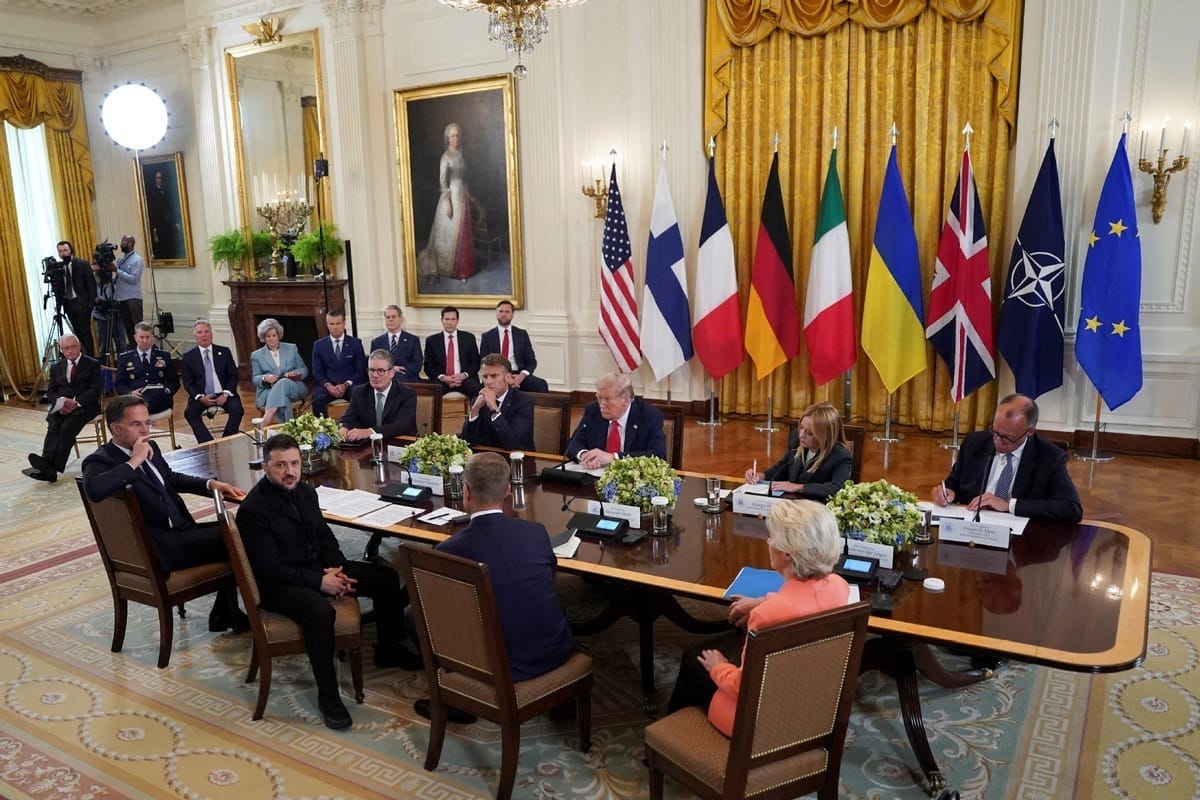Talks Without Teeth: Russia Buys Time, Ukraine Bleeds
At the White House, Trump promised vague security guarantees for Ukraine while pushing talks without a ceasefire. Zelenskyy called it progress, but Russia keeps advancing and offering no commitments. Headlines mask reality: Moscow buys time, Kyiv bleeds, markets stay on edge.
What happened?
Yesterday at a White House summit, Trump told Zelenskyy that the US would help ensure Ukraine's security in any peace deal, saying Europeans would be "first line of defence" with US support. Zelenskyy called this a "major step" and said the guarantees would be formalized within seven to ten days, adding that Ukraine had offered to buy about $90bn of US weapons. European leaders pressed for a ceasefire first; Trump said talks could proceed while fighting continues. Trump also began arranging a Putin-Zelenskyy meeting, potentially in Hungary, though Moscow has made no commitment and ruled out NATO troops in any arrangement. On the ground, Russia continues to grind forward in eastern Ukraine.
Why does this matter?
A pledge without details: US support for "Article 5-like" guarantees would strengthen Kyiv diplomatically, but the scope, enforcement, and deployment remain unclear. Trump himself acknowledged during his opening remarks that all his efforts may be in vain, hedging his bets.
Sequencing split: Europe wants a ceasefire before talks, but Trump prefers to negotiate amid combat. This shifts the balance of power at the negotiating table in Russia's favor.
Moscow's posture: Foreign Minister Lavrov says Russia is "not rejecting formats," but any leaders' meeting must be thoroughly prepared, and no long-term deal is possible without "respect for Russia's security" and the rights of Russians in Ukraine.
Frontline reality: Continued Russian advances, however incremental, harden bargaining positions and test Ukraine's ability to trade space for time.
What's next?
The drafting of the security-guarantee text begins this week in Washington and European capitals. Trump is pursuing a direct meeting between Putin and Zelenskyy. However, Russia's lack of public commitment and its conditions mean that timelines are fluid. Any framework addressing the deployment or monitoring of forces must consider Russia's rejection of NATO troops and the legal and political limitations of its allies. According to close associates of the Ukrainian president, he is reaching out to Trump's business contacts and friends in an attempt to sway Trump because they believe the American president favors Putin over Zelenskyy.
finformant view
The day produced headlines, not solutions. This was a big PR stunt, and not a triumph for Zelenskyy, who did not want to agree to give up any territory, especially unoccupied areas. Given Russia's responses, they are just buying time and will continue the war. However, Putin is getting closer to ensuring that Trump will blame Zelenskyy for the failure. The root causes of the war remain unaddressed. For Europe and the markets, that means lingering uncertainty.



